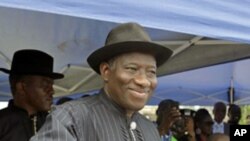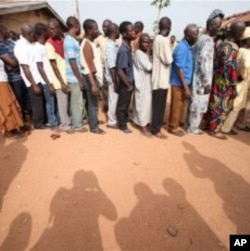With over 30 African countries scheduled to hold parliamentary and presidential elections this year, the International Monetary Fund (IMF) warns their leaders to balance their need to spend money for votes with macro-economic prudence.
So far, about 16 African countries have held elections and a few, including Egypt and Sudan, have had referendums.
Roger Nord, senior advisor in the African Department of the IMF, says macro-economic caution helped many countries weather the big economic downturn of 2008 and 2009.
“Let me start by saying that having elections is, of course, a good thing and what we’ve seen over the past 20 years in Africa is a big move toward more representative government. But, at the same time, election years present challenges, particularly in the context where countries are exposed to shocks, from higher fuel prices and higher food prices in global markets, and governments will have to react to that,” he says.
He says one example of election overspending is Ghana in 2009 when the government there reportedly had to turn to the IMF for a $1 billion loan.
Nord says the IMF is simply offering African countries a forward-looking advice on election-related costs.
“What we are facing in the course of this year and the next is a number of important elections, for example, in Senegal where the government has to face difficult choices. On the one hand, they are facing electricity shortages. Those need to be resolved. On the other hand, like governments everywhere, they face budgetary constraints,” he says.
He says the IMF has been advising African countries in three areas.
“One, of course, is to prioritize, particularly on the spending side and address those parts that are most important. Second, build on your domestic revenue base. And, the third piece of advice is to broaden the financing base and look for financing outside and beyond the traditional donors,” Nord says
Nord says the IMF does not provide special election funding to African countries. But, he says the institution provides help to countries that are facing economic shocks.
“We did so in 2008 and 2009, and we are doing so again now as countries are facing pressures for rising international prices and the impact that has on their balance payments,” Nord said.
He says the IMF is confident African countries will continue to put in place those economic protections like low debt and high reserves that helped them weather the shocks of the 2008-2009 economic downturn.
‘And, I think going forward, it’s important that countries rebuild those margins, some of which have been eroded by the past crisis because if not, the next crisis will be that much more difficult to deal with. So, our advice is that macro-economic prudence is good for countries in the long run, and we’re confident that, with strong economic management, Africa will be among the fastest-growing regions in the world over the next decade,” Nord says.





